This article was medically reviewed by Erik Kramer, DO, MPH and by wikiHow staff writer, Aly Rusciano. Dr. Erik Kramer is a Board-Certified Primary Care Physician at the University of Colorado. With over 15 years of experience, his clinical interests include obesity and weight management, diabetes care, and preventive care, as well as embracing a holistic approach to primary care. He received his Doctorate in Osteopathic Medicine (D.O.) from the Touro University Nevada College of Osteopathic Medicine and completed his residency at Central Maine Medical Center. Dr. Kramer is a Diplomate of the American Board of Obesity Medicine.
There are 21 references cited in this article, which can be found at the bottom of the page.
This article has been viewed 688,935 times.
Everybody gets bloated every now and then—it’s a natural occurrence! But bloating can be rather uncomfortable, especially if it’s happening more often than you’d like. In this article, we'll share the best quick tips, natural remedies, and medications to help reduce bloating quickly. We'll also talk about dietary and lifestyle changes you can make in the long-term to help prevent bloating in the future. Read on for our complete guide!
Steps
Expert Q&A
-
QuestionI've been having constant bloating and it really hurts. How can I stop this from happening?
 Chris M. Matsko, MDDr. Chris M. Matsko is a retired physician based in Pittsburgh, Pennsylvania. With over 25 years of medical research experience, Dr. Matsko was awarded the Pittsburgh Cornell University Leadership Award for Excellence. He holds a BS in Nutritional Science from Cornell University and an MD from the Temple University School of Medicine in 2007. Dr. Matsko earned a Research Writing Certification from the American Medical Writers Association (AMWA) in 2016 and a Medical Writing & Editing Certification from the University of Chicago in 2017.
Chris M. Matsko, MDDr. Chris M. Matsko is a retired physician based in Pittsburgh, Pennsylvania. With over 25 years of medical research experience, Dr. Matsko was awarded the Pittsburgh Cornell University Leadership Award for Excellence. He holds a BS in Nutritional Science from Cornell University and an MD from the Temple University School of Medicine in 2007. Dr. Matsko earned a Research Writing Certification from the American Medical Writers Association (AMWA) in 2016 and a Medical Writing & Editing Certification from the University of Chicago in 2017.
Family Medicine Physician I would first try a brisk walk after eating to get the digestive system moving. If this is not effective I would try to take a simethicone-containing product, such as Gas X. If bloating is chronic I would talk it over with your doctor to see if there is not an allergic process going on, such as Celiac disease or lactose intolerance.
I would first try a brisk walk after eating to get the digestive system moving. If this is not effective I would try to take a simethicone-containing product, such as Gas X. If bloating is chronic I would talk it over with your doctor to see if there is not an allergic process going on, such as Celiac disease or lactose intolerance. -
QuestionCan I take simethicone and amitriptyline together to treat severe bloating?
 Chris M. Matsko, MDDr. Chris M. Matsko is a retired physician based in Pittsburgh, Pennsylvania. With over 25 years of medical research experience, Dr. Matsko was awarded the Pittsburgh Cornell University Leadership Award for Excellence. He holds a BS in Nutritional Science from Cornell University and an MD from the Temple University School of Medicine in 2007. Dr. Matsko earned a Research Writing Certification from the American Medical Writers Association (AMWA) in 2016 and a Medical Writing & Editing Certification from the University of Chicago in 2017.
Chris M. Matsko, MDDr. Chris M. Matsko is a retired physician based in Pittsburgh, Pennsylvania. With over 25 years of medical research experience, Dr. Matsko was awarded the Pittsburgh Cornell University Leadership Award for Excellence. He holds a BS in Nutritional Science from Cornell University and an MD from the Temple University School of Medicine in 2007. Dr. Matsko earned a Research Writing Certification from the American Medical Writers Association (AMWA) in 2016 and a Medical Writing & Editing Certification from the University of Chicago in 2017.
Family Medicine Physician Yes you can take both together. They have different actions — one is an antidepressant — and if your doctor prescribes them, they may act synergistically.
Yes you can take both together. They have different actions — one is an antidepressant — and if your doctor prescribes them, they may act synergistically.
References
- ↑ https://my.clevelandclinic.org/health/symptoms/21740-bloated-stomach
- ↑ https://link.springer.com/article/10.1007/s10620-006-9079-3
- ↑ https://www.med.umich.edu/1libr/MBCP/AbdominalSelfmassage.pdf
- ↑ https://youtu.be/UOAa8fGurOk?t=90
- ↑ https://www.scripps.org/news_items/6821-stomach-pain-in-kids-and-teens
- ↑ http://www.nhs.uk/Livewell/digestive-health/Pages/beat-the-bloat.aspx
- ↑ https://www.nhs.uk/conditions/bloating/
- ↑ https://my.clevelandclinic.org/health/symptoms/21740-bloated-stomach
- ↑ https://my.clevelandclinic.org/health/diseases/7314-gas-and-gas-pain#management-and-treatment
- ↑ https://my.clevelandclinic.org/health/diseases/7314-gas-and-gas-pain
- ↑ https://www.nhs.uk/medicines/peppermint-oil/
- ↑ https://my.clevelandclinic.org/health/symptoms/21740-bloated-stomach
- ↑ https://www.ncbi.nlm.nih.gov/pmc/articles/PMC3016669/
- ↑ https://www.sciencedirect.com/science/article/abs/pii/S0005796701000651
- ↑ https://health.clevelandclinic.org/11-diet-changes-that-help-you-fight-pms/
- ↑ https://www.health.harvard.edu/staying-healthy/how-to-get-more-fiber-in-your-diet
- ↑ https://www.nm.org/healthbeat/healthy-tips/nutrition/how-to-beat-the-bloat
- ↑ https://www.health.harvard.edu/staying-healthy/how-much-water-should-you-drink
- ↑ https://pubmed.ncbi.nlm.nih.gov/19502016/
- ↑ https://my.clevelandclinic.org/health/diseases/7314-gas-and-gas-pain#management-and-treatment
- ↑ https://health.clevelandclinic.org/foods-that-cause-bloating/
- ↑ https://www.health.harvard.edu/vitamins-and-supplements/health-benefits-of-taking-probiotics
- ↑ https://my.clevelandclinic.org/health/diseases/7314-gas-and-gas-pain
- ↑ https://iffgd.org/gi-disorders/symptoms-causes/bloating-and-distension/?showall=&start=3
- ↑ https://aboutibs.org/treatment/ibs-diet/low-fodmap-diet/
- ↑ https://iffgd.org/gi-disorders/symptoms-causes/bloating-and-distension/?showall=&start=3
- ↑ https://www.nhs.uk/conditions/bloating/
- ↑ https://my.clevelandclinic.org/health/diseases/7314-gas-and-gas-pain#management-and-treatment
About This Article
To get rid of bloating fast, take an over-the-counter medication that contains the ingredient simethicone. You can also apply a heating pad to your abdomen to ease the pain and relax your muscles, which can relieve the gas or constipation causing the bloating. If your bloating is a symptom of PMS, avoid caffeine and alcohol and consider talking to your doctor about getting a prescription for spironolactone. You can also talk to a doctor about options if you're dealing with chronic bloating caused by IBS or celiac disease. For tips on dietary and lifestyle changes you can make to prevent bloating, read on!
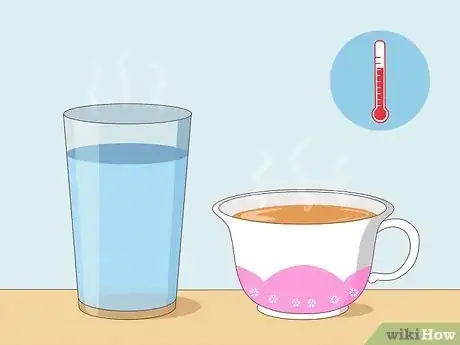
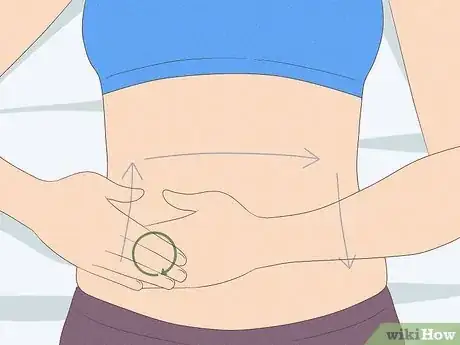
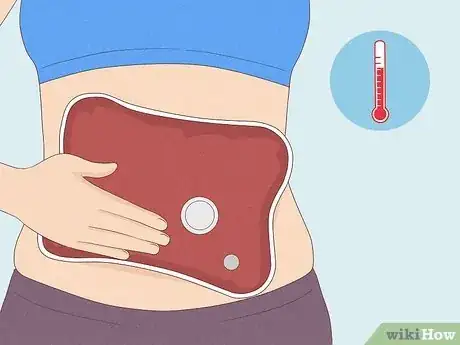
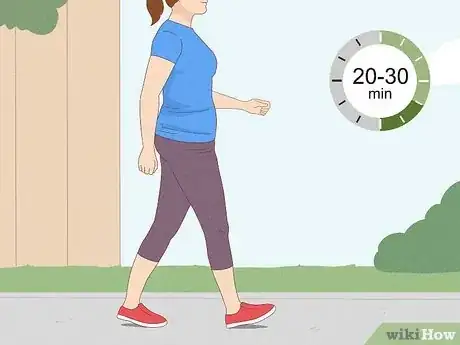
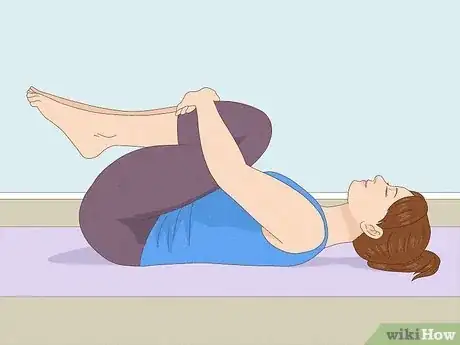
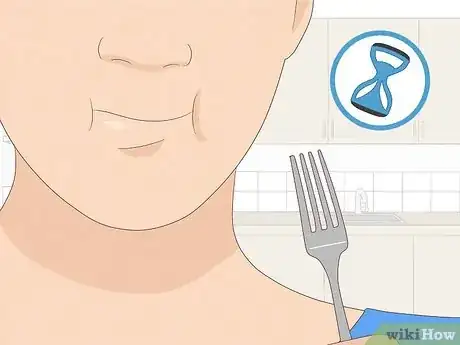
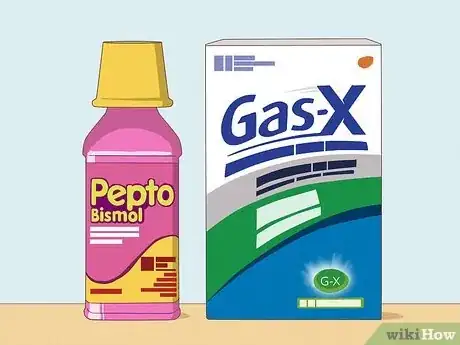
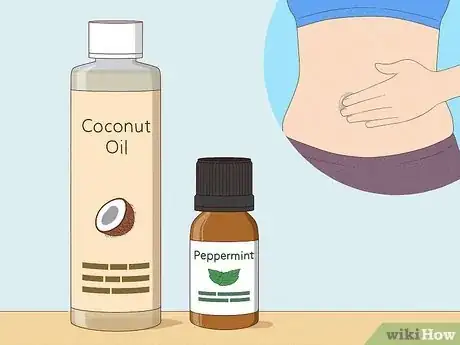
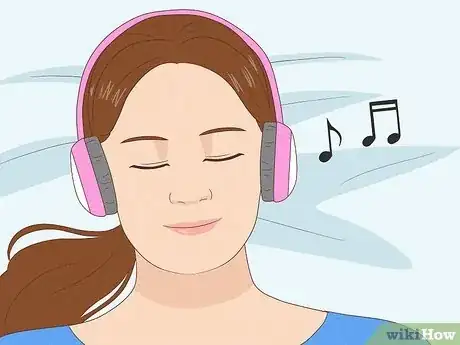
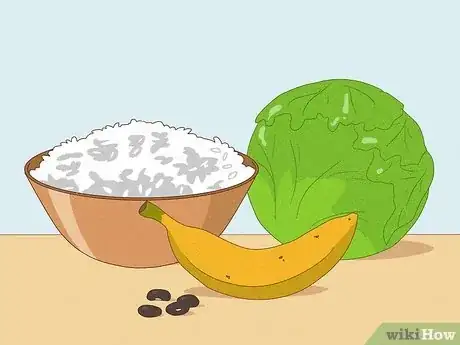
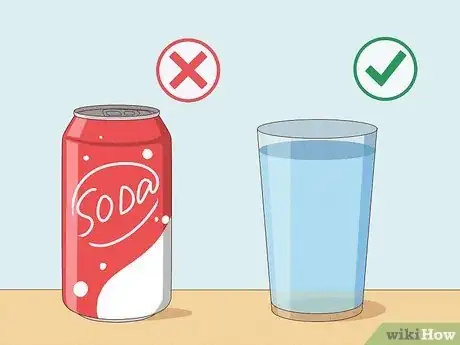
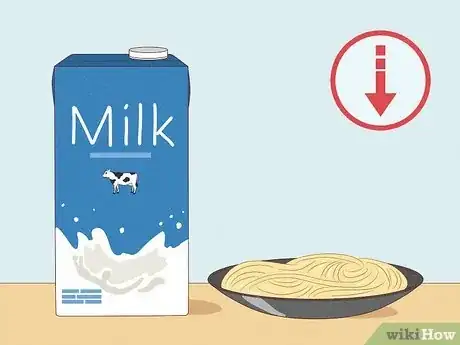
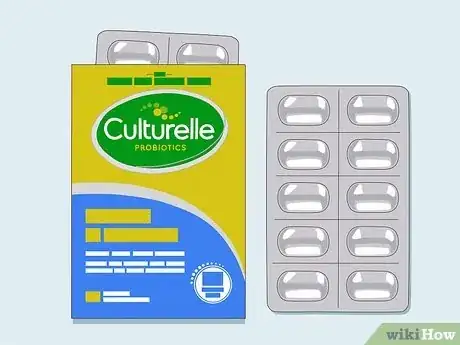
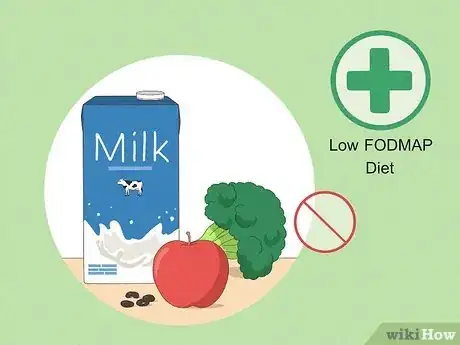
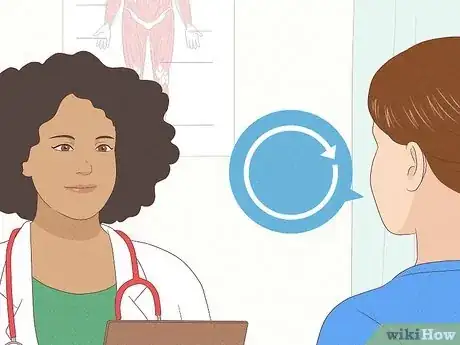
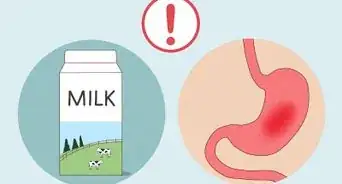
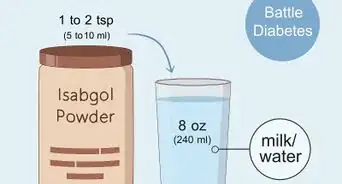

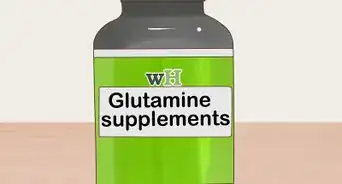
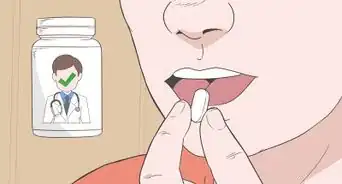
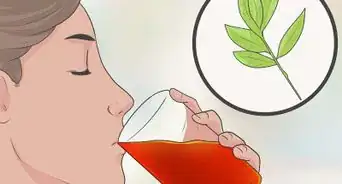
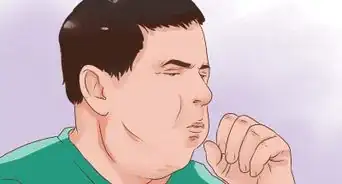
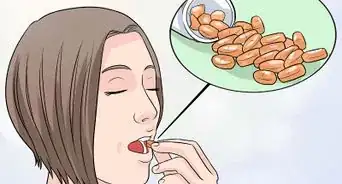
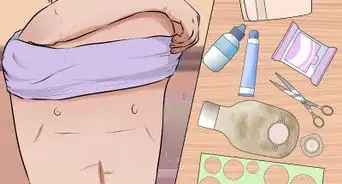
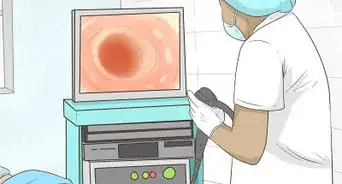
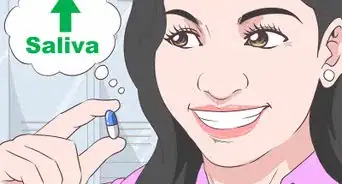
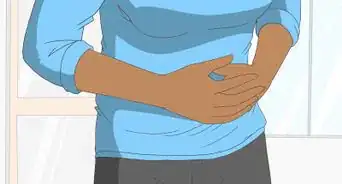
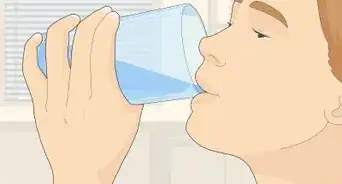
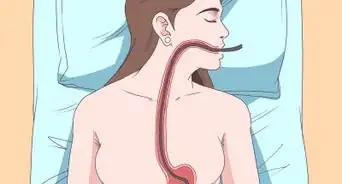








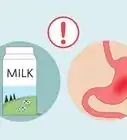
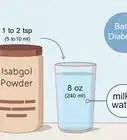
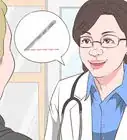
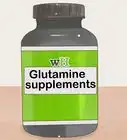



































Medical Disclaimer
The content of this article is not intended to be a substitute for professional medical advice, examination, diagnosis, or treatment. You should always contact your doctor or other qualified healthcare professional before starting, changing, or stopping any kind of health treatment.
Read More...